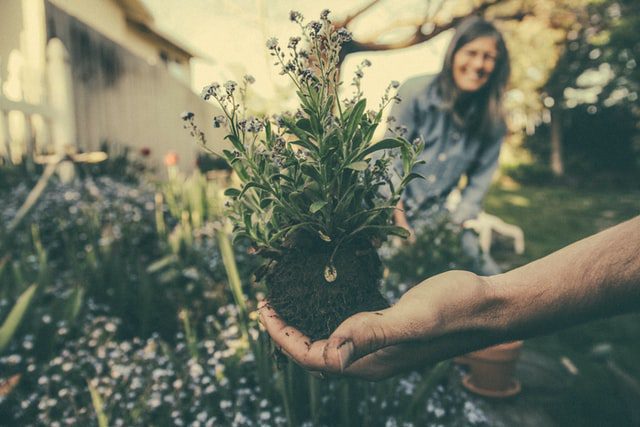Do you own a garden, or plants whether in your yard, terrace window sill or rooftop? Know that gardening does more than serve as a treat for your eyes and supply new sources of veggies on your plate. Even if your gardening consists of a small planter with a cactus on your office table, there is a correlation to emotional wellbeing.
Science Behind Gardening And Emotional Well Being
Because gardening contributes to your mental wellbeing and emotional health, it slows you down and teaches you patience by forcing you to follow Mother Nature’s timeline. Gardening is a physical exercise that starts a series of positive reactions in the body as it calms the nerves. Catering to a plant is a responsibility that delivers a sense of pride and purpose regardless of age.
Gardening is intricately related to our emotional well-being. In fact, gardening is observed to deliver the same benefits as many other popular activities like dining out, walking or biking.
Benefits Of Gardening
1. Improved sleep
Sleep debts can have detrimental effects on our physical as well as emotional health. If you are not getting good sleep hours, you are at high risk for weight gain and other ailments. Sleepless nights rob you of the ability to fight stress, an unfortunate phenomenon of our daily lives. Researchers from the University of Pennsylvania have found that gardening is as practical as doing yoga or any other aerobic exercise when easing away sleep debt. The observations state that individuals involved in gardening are likely to get at least seven hours of sleep every night.
In another study, the effects of indoor gardening were observed as regards sleep patterns, irritability and agitation in patients who have dementia. Indoor gardening was seen to improve the wake after sleep onset, nap, nocturnal sleep time, and nocturnal sleep efficiency.
2. Stress relief
There’s a correlation between gardening and emotional wellbeing because it helps alleviate stress. The act of weeding, pruning, digging, and planting is therapeutic. Being outside with plants, soil and flowers has a calming effect on the nerves, and science proves it. A Dutch study asked two groups of people to do a tedious job, following which they had to spend some time in a garden. The cortisol levels (stress hormone) were amazingly lower in people who had a garden visit than their counterparts. This group also reported an improvement in their mood after their garden visit.
3. Alleviates depression
Another study conducted over a few years published their results in 2011 which involved people suffering from depression who participated in gardening activities for 12 weeks. At the end of the study period, their profiles were checked. Their depression symptoms markedly improved.
Horticultural therapy is a patent form of treatment for mental illnesses and several lifestyle disorders. The outdoor air, proximity to nature, caring for plants introduces a sense of both responsibility and liberation. It all helps in improving one’s mood.
4. Reduces the risk of dementia
Dementia is a debilitating condition affecting the elderly. Studies show that gardening may cut back the risk of Alzheimer’s Disease, a common cause of senile dementia. An Australian study showed that daily gardening activities reduced the risk of dementia by 36% in adults over 60 years of age.
5. Wards off loneliness
Community gardening is an excellent way to ward off loneliness. Being isolated and lonely can be detrimental to one’s cognitive and emotional health. Gardening gives such elderly a chance to meet up, socialize, and make friendships instead of sitting alone at home waiting for someone to call upon them. Numerous gardening groups on social media gather and support each other online. There’s a correlation between these gardening activities and emotional wellbeing, which is a blessing in the wake of the COVID-19 lockdown.
6. Family bonding
The fast-paced lifestyles leave less time for family time. Gardening is an activity that includes everyone in the household, young and old. It gives planned opportunities to spend some family time and enjoy fresh food from the garden together. School, family and community gardens are sprouting and for a good reason too. One study reported that students who participated in such gardens had a better sense of personal well-being.
7. Improves memory
Gardening is observed to improve cognitive function and bolster memory. People who have dementia in the Netherlands and Norway participate in large-scale programs like Greencare. A study showed the positive effects of gardening in an inpatient facility for patients with dementia. Researchers discovered increased amounts of nerve growth factors in the brain associated with memory in all patients.
8. Sunshine vitamin production
A little sunshine can contribute hugely when it comes to our emotional health. Spending time gardening in the sun is a great way to do it. It boosts the production of the sunshine vitamin D in your skin. Only half an hour in the early sun can produce 8,000 and 50,000 international units (IU) of vitamin D in our body.
Vitamin D is essential for bone and muscle health but also contributes to alleviate depression. The sunshine vitamin also plays a vital role in revving up the body’s immune status, thereby helping maintain overall health and vigor.
Gardening has a lot of science backed benefits for people of all ages, comparable to the benefits of a yoga or meditation session. A lot of people who take this up even begin to truly enjoy the activity. What’s best is that you can also begin to garden for plants and herbs you’d like to consume – a great way to get those gardening benefits while having herbs for your food!





